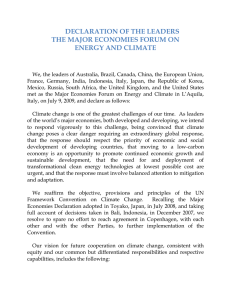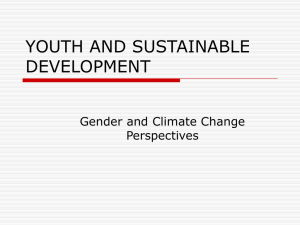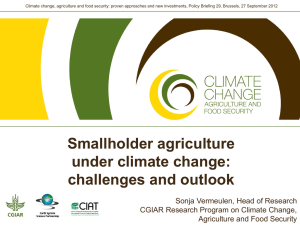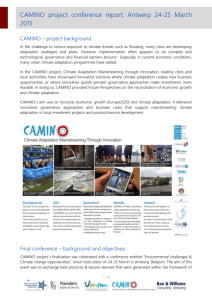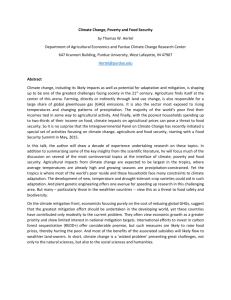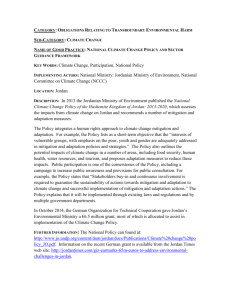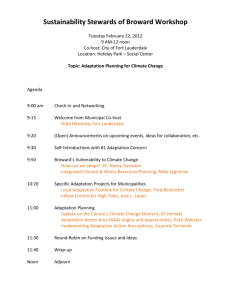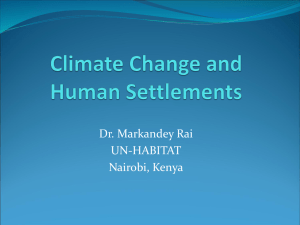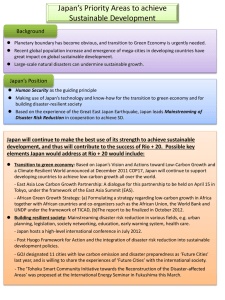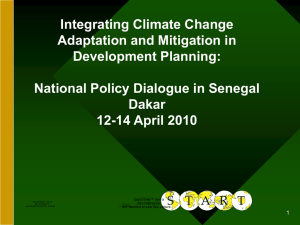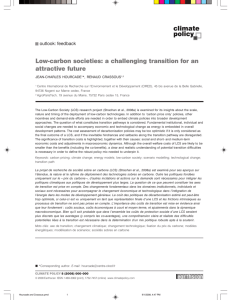National Policy Position Ireland - Department of Environment and
advertisement
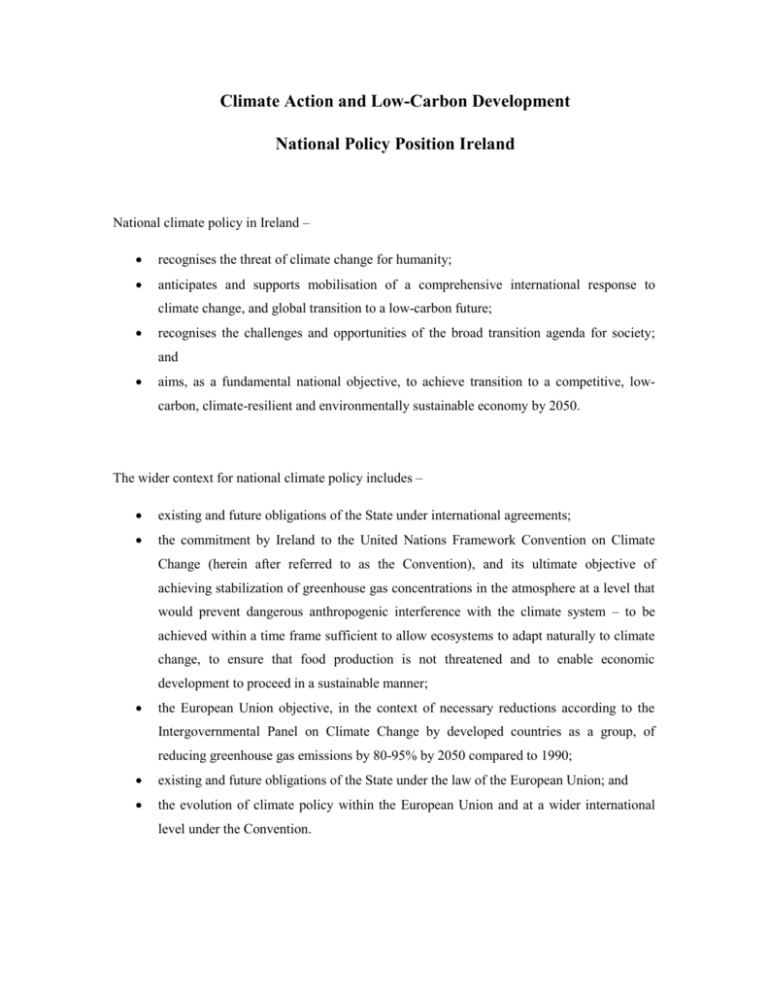
Climate Action and Low-Carbon Development National Policy Position Ireland National climate policy in Ireland – recognises the threat of climate change for humanity; anticipates and supports mobilisation of a comprehensive international response to climate change, and global transition to a low-carbon future; recognises the challenges and opportunities of the broad transition agenda for society; and aims, as a fundamental national objective, to achieve transition to a competitive, lowcarbon, climate-resilient and environmentally sustainable economy by 2050. The wider context for national climate policy includes – existing and future obligations of the State under international agreements; the commitment by Ireland to the United Nations Framework Convention on Climate Change (herein after referred to as the Convention), and its ultimate objective of achieving stabilization of greenhouse gas concentrations in the atmosphere at a level that would prevent dangerous anthropogenic interference with the climate system – to be achieved within a time frame sufficient to allow ecosystems to adapt naturally to climate change, to ensure that food production is not threatened and to enable economic development to proceed in a sustainable manner; the European Union objective, in the context of necessary reductions according to the Intergovernmental Panel on Climate Change by developed countries as a group, of reducing greenhouse gas emissions by 80-95% by 2050 compared to 1990; existing and future obligations of the State under the law of the European Union; and the evolution of climate policy within the European Union and at a wider international level under the Convention. The evolution of climate policy in Ireland will be an iterative process, based on the adoption by Government of a series of national plans over the period to 2050. Greenhouse gas mitigation and adaptation to the impacts of climate change will be addressed in parallel national plans – respectively through National Low-Carbon Roadmaps and National Climate Change Adaptation Frameworks. The National Low-Carbon Roadmaps and the National Climate Change Adaptation Frameworks will constitute key pillars of the process through which Government will develop and progress, mitigation and adaptation policy in order to enable the State to pursue and achieve transition to a low-carbon, climate-resilient and environmentally sustainable economy in the period to 2050. The series of national plans will be adopted and reviewed on a structured basis, with authority set down in primary legislation, to ensure a coherent and comprehensive policy across all key sectors, and to provide maximum clarity and policy certainty for business and stakeholders generally. The structural basis for national plans on mitigation and adaptation will reflect Government commitment to transparency and inclusiveness. Accountability on national policy will include annual reporting to Dáil Éireann. The low-carbon roadmapping process will be guided by a long-term vision of low-carbon transition based on – an aggregate reduction in carbon dioxide (CO2) emissions of at least 80% (compared to 1990 levels) by 2050 across the electricity generation, built environment and transport sectors; and in parallel, an approach to carbon neutrality in the agriculture and land-use sector, including forestry, which does not compromise capacity for sustainable food production. The National Climate Change Adaptation Framework will articulate a strategic policy context for appropriate action at a sectoral and local level, in response to the impacts of climate change in Ireland in the shorter and longer term. The objective of the Framework will be to inform and mobilise an integrated approach, involving all stakeholders on all institutional levels, to ensure that adaptation measures are taken and implemented, including through incorporation into future investment plans where appropriate, to manage and reduce sectoral and local vulnerability to the negative impacts of climate change. The Framework will provide a clear mandate for Government Departments, agencies and local authorities to develop and implement sectoral and local adaptation plans. Key issues for consideration in the on-going evolution of national climate policy include – the need to take a long-term view, having regard to — o obligations of the State under the law of the European Union or any international agreement to which Ireland is a Party; o likely future greenhouse gas mitigation commitments of the State and the economic imperative for early and cost-effective action; and o the requirement to be able to act quickly in response to economic and environmental occurrences and circumstances; the promotion of sustainable development; the need to ensure that objectives are achieved at the least cost to the national economy and that any measures adopted to achieve those objectives are cost-effective, and do not impose an unreasonable burden on the Exchequer; the need to take advantage of environmentally sustainable economic opportunities both within and outside the State; the need to ensure a coherent and cost-effective approach to the twin challenges of sustainable food production and climate change in the agriculture and land use sector; relevant scientific or technical advice; and relevant research on effective measures for mitigation and adaptation.
